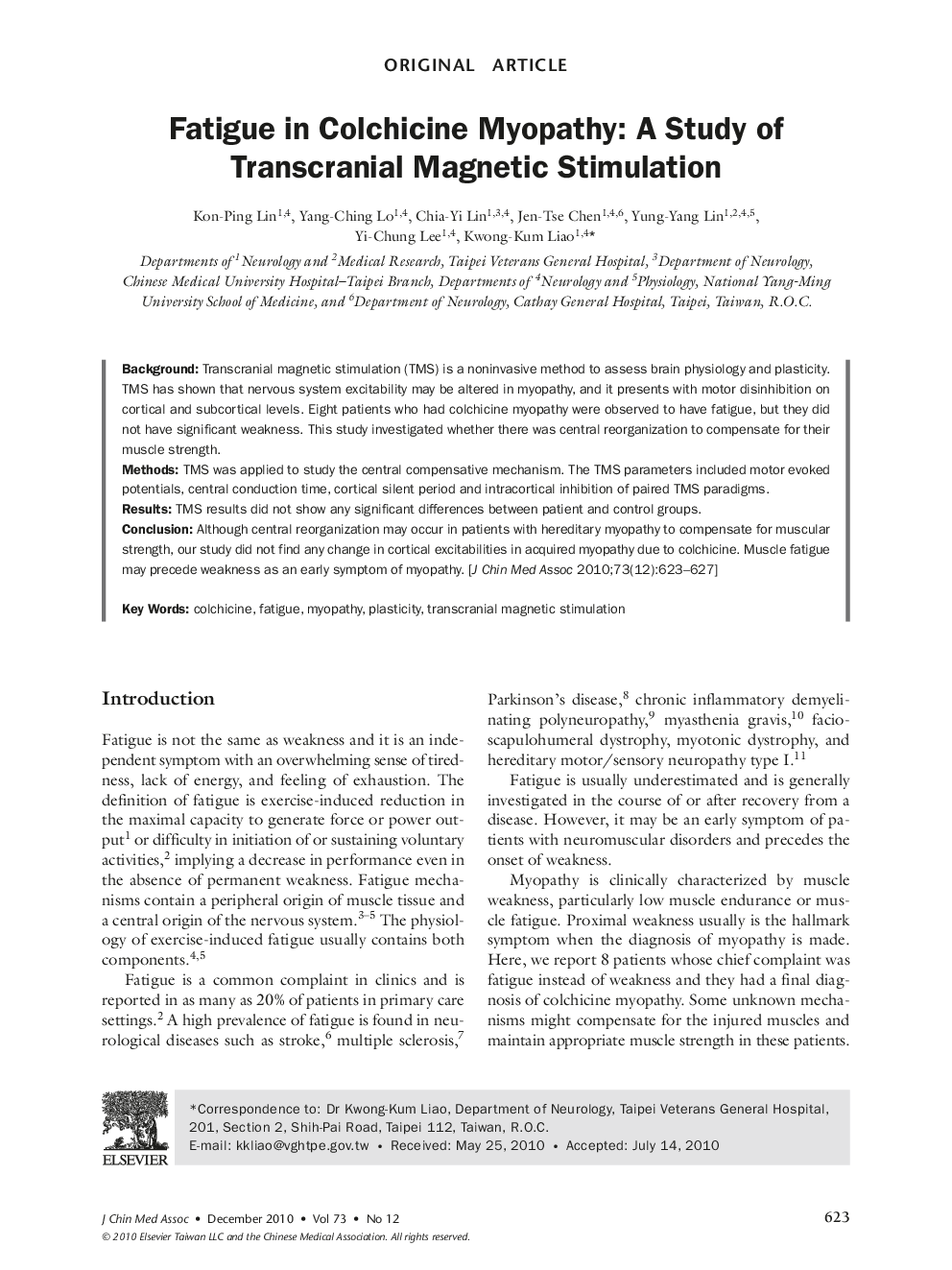| کد مقاله | کد نشریه | سال انتشار | مقاله انگلیسی | نسخه تمام متن |
|---|---|---|---|---|
| 3477064 | 1233300 | 2010 | 5 صفحه PDF | دانلود رایگان |

BackgroundTranscranial magnetic stimulation (TMS) is a noninvasive method to assess brain physiology and plasticity. TMS has shown that nervous system excitability may be altered in myopathy, and it presents with motor disinhibition on cortical and subcortical levels. Eight patients who had colchicine myopathy were observed to have fatigue, but they did not have significant weakness. This study investigated whether there was central reorganization to compensate for their muscle strength.MethodsTMS was applied to study the central compensative mechanism. The TMS parameters included motor evoked potentials, central conduction time, cortical silent period and intracortical inhibition of paired TMS paradigms.ResultsTMS results did not show any significant differences between patient and control groups.ConclusionAlthough central reorganization may occur in patients with hereditary myopathy to compensate for muscular strength, our study did not find any change in cortical excitabilities in acquired myopathy due to colchicine. Muscle fatigue may precede weakness as an early symptom of myopathy.
Journal: Journal of the Chinese Medical Association - Volume 73, Issue 12, December 2010, Pages 623-627